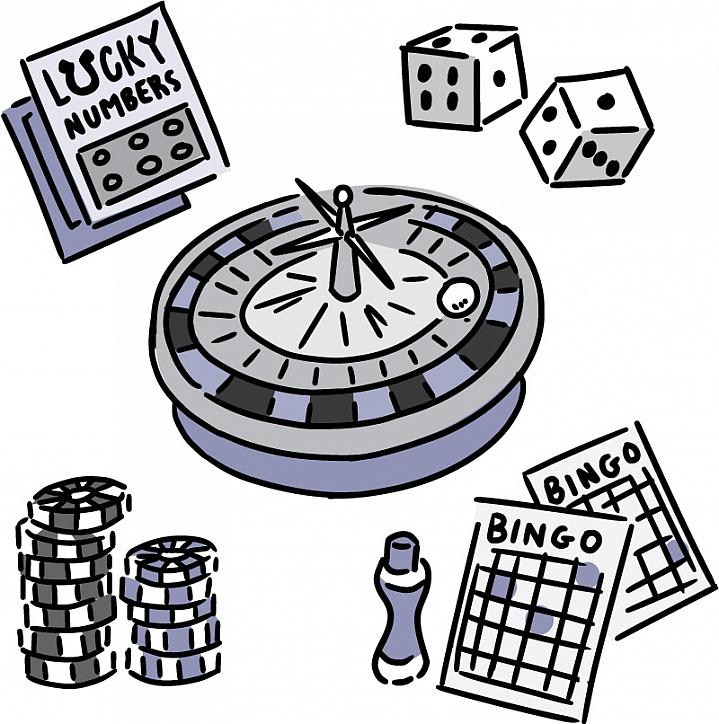
Cbt Gambling Treatment Programs
OBJECTIVE: Clinicians lack adequate data on the effectiveness of treatment for pathological gambling in low- and middle-income countries. METHODS: We evaluated a manualized treatment program that included components of cognitive-behavioral therapy, motivational interviewing, and imaginal exposure in a sample of 128 participants diagnosed with pathological gambling. Our team recruited participants via the helpline of the National Responsible Gambling Program (NRGP) of South Africa between May 2011 and February 2012. Eligible participants, who met the DSM-IV-TR criteria for pathological gambling as assessed by the Structured Clinical Interview for Pathological Gambling (SCI-PG), were referred to practitioners who had been trained in the intervention technique. We then compared pre- and post-treatment scores obtained on the Yale-Brown Obsessive-Compulsive Scale Adapted for Pathological Gambling (PG-YBOCS), the primary outcome measure, and the Sheehan Disability Scale (SDS), the secondary outcome measure. RESULTS: Scores obtained on the PG-YBOCS and the SDS both decreased significantly from the first to the final session (t[127] = 23.74, P < .001, r = .9; t[127] = 19.23, P < .001, r = .86, respectively). CONCLUSIONS: The urges and disability symptoms related to pathological gambling were significantly reduced among participants completing treatment. These preliminary results hold promise for individuals with pathological gambling in South Africa and other low- and middle-income countries.Cognitive-behavioral therapy is currently considered the most efficient method of treatment for gambling disorder; this type of therapy postulates the fact that the irrational thoughts tied to the ability of a person to control the game and predict the win represent the main factors which determine the development and the maintenance of this pathology 39, 40, 41, 42, 43, 44, 45. Cognitive Behavioral Therapy Treatment Cognitive behavioral-therapy treatment sessions have shown promising results in the face of a variety of addictions, including gambling. With this treatment, a mental health professional can help an addict to identify the thought processes that have led to the compulsive gambling practice.


Cbt Gambling Treatment Programs
OBJECTIVE: Clinicians lack adequate data on the effectiveness of treatment for pathological gambling in low- and middle-income countries. METHODS: We evaluated a manualized treatment program that included components of cognitive-behavioral therapy, motivational interviewing, and imaginal exposure in a sample of 128 participants diagnosed with pathological gambling. Our team recruited participants via the helpline of the National Responsible Gambling Program (NRGP) of South Africa between May 2011 and February 2012. Eligible participants, who met the DSM-IV-TR criteria for pathological gambling as assessed by the Structured Clinical Interview for Pathological Gambling (SCI-PG), were referred to practitioners who had been trained in the intervention technique. We then compared pre- and post-treatment scores obtained on the Yale-Brown Obsessive-Compulsive Scale Adapted for Pathological Gambling (PG-YBOCS), the primary outcome measure, and the Sheehan Disability Scale (SDS), the secondary outcome measure. RESULTS: Scores obtained on the PG-YBOCS and the SDS both decreased significantly from the first to the final session (t[127] = 23.74, P < .001, r = .9; t[127] = 19.23, P < .001, r = .86, respectively). CONCLUSIONS: The urges and disability symptoms related to pathological gambling were significantly reduced among participants completing treatment. These preliminary results hold promise for individuals with pathological gambling in South Africa and other low- and middle-income countries.Cognitive-behavioral therapy is currently considered the most efficient method of treatment for gambling disorder; this type of therapy postulates the fact that the irrational thoughts tied to the ability of a person to control the game and predict the win represent the main factors which determine the development and the maintenance of this pathology 39, 40, 41, 42, 43, 44, 45. Cognitive Behavioral Therapy Treatment Cognitive behavioral-therapy treatment sessions have shown promising results in the face of a variety of addictions, including gambling. With this treatment, a mental health professional can help an addict to identify the thought processes that have led to the compulsive gambling practice.
Cbt Gambling Treatment Near Me
Pasche, S. C., Stein, D. J., Sinclair, H., Sinclair, H., Collins, P., Pretorius, A., & Grant, J. E. (January 01, 2013). The effectiveness of a cognitive-behavioral intervention for pathological gambling: A country-wide study. Annals of Clinical Psychiatry, 25, 4, 250-256.